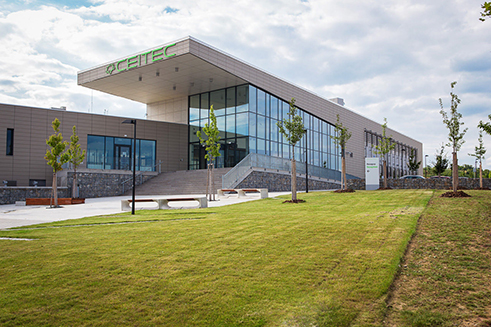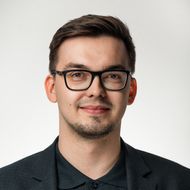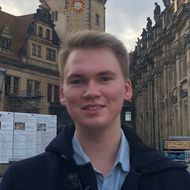‘Recognition of Our Work Motivates Us to Continue Our Research’

A report by students of MIEM has won a prestigious prize at the 44th International Conference on Telecommunications and Signal Processing organized by Brno University of Technology in the Czech Republic. The project by the HSE students was named the best student work by the organizing committee.
The conference took place at the end of July and was held online due to COVID-19 restrictions. Among the participants were HSE MIEM students Nikolay Stepanov, Albert Veprev and Aleksandra Sharapova (academic supervisor Aleksandr Ometov), whose report won the Best Student Paper Award.
Brno University of Technology (Czech Republic) is the main organizer of the conference, which was first held in 1977 and went international in 1980. The conference is currently run in cooperation with 18 universities from all over the world. This year, researchers from more than 30 countries took part in the event.
The students from HSE MIEM presented a paper called ‘On Machine Learning Applicability to Transaction Time Prediction for Time-Critical C-ITS Applications.’ The research was also co-authored by Mikhail Komarov (Professor of the HSE Graduate School of Business Department of Business Informatics), Darya Alekseeva (PhD student, Tampere University, Finland), Elena Simona Lohan (Professor, Tampere University, Finland) and Aleksandr Ometov (post-doc, Tampere University, Finland).
The paper presents a method for optimizing transactions in C-ITS (Cooperative Intelligent Transport Systems) networks using machine learning. It presents machine-learning models for predicting transaction times and examines several algorithms for solving two types of tasks: classification and regression. The algorithms make it possible to calculate the parameters of the intelligent transport system and the environmental factors affecting it, as well as to optimize the system in order to make data transfer faster and more reliable. The algorithms developed can enable vehicles to automatically select the optimal channel for data transfer and, for example, send messages about emergencies on the roads more quickly, thereby improving traffic safety.
The conference materials have been published in a collection available on all major reference databases (Scopus, DBLP, Google Scholar, the IEEE Xplore digital library).

Aleksandr Ometov, Academic Supervisor, post-doc at Tampere University
It’s good to see talented young specialists from Russia taking part in the conference not as audience members, but presenting their own work and earning recognition from the international community. The students of MIEM have made their teachers proud!

Nikolay Stepanov, 4th-year student of MIEM
Winning the Best Student Paper Award was very unexpected for us—the conference featured presentations of a lot of strong student works, mostly done by doctoral students. Such high recognition of our work motivates us to continue our research and obtain good results. I would also like to thank Aleksandr Ometov, our academic advisor, whose expertise and support helped us to achieve such high-quality results.

Aleksandra Sharapova, 4th-year MIEM student
The interdisciplinary nature of project work at MIEM allowed us to put together a group of students from different fields. Our skills complemented each other well and helped us to conduct research that combines the fields of machine learning and telecommunications. Working on an interdisciplinary project allowed us to hone the skills we’ve learned in our studies and gain new knowledge from adjacent fields.

Albert Veprev, 4th-year MIEM student
Taking part in the conference allowed us to present the results of our research at the international level and discuss its future development with leading world researchers. It was very interesting to participate in an event of this level and to learn more about the latest developments in wireless networks first-hand. Unfortunately, due to COVID-19 restrictions, the conference was held online, but we will continue our research and plan to present new results in person in the future.

